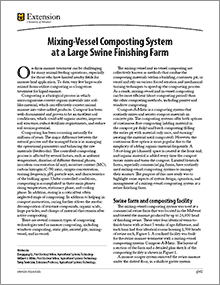

Mixing-Vessel Composting System at a Large Swine Finishing Farm
New
Learn about the mixing-vessel composting system used on large swine farms to treat manure efficiently and improve soil quality.
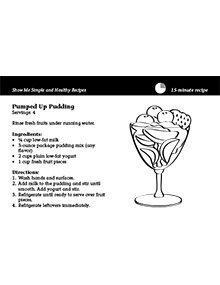
Show Me Simple and Healthy Recipes — Pumped Up Pudding (Bundle of 25)
Revised $10
Quick, nutritious dessert featuring milk, pudding mix, yogurt, and fruit—ready in 15 minutes with clear instructions and nutrition analysis.
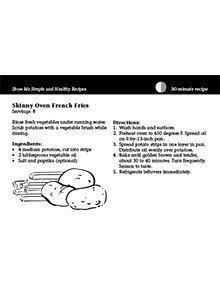
Show Me Simple and Healthy Recipes — Skinny Oven French Fries (Bundle of 25)
Revised $10
Quick, healthy oven-baked fries using potatoes, vegetable oil, and spices. Simple ingredients, easy preparation, and nutrition information included.
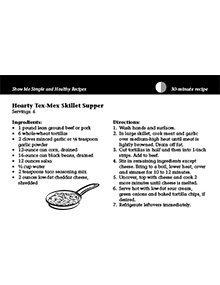
Show Me Simple and Healthy Recipes — Hearty Tex-Mex Skillet Supper (Bundle of 25)
Revised $10
This recipe card offers a quick and affordable Tex-Mex meal featuring ground beef or pork, tortillas, black beans, corn, and cheese.
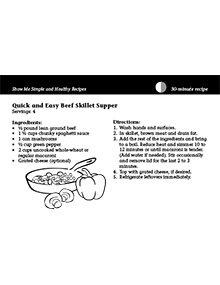
Show Me Simple and Healthy Recipes — Quick and Easy Beef Skillet Supper (Bundle of 25)
Revised $10
Editor's note
The following abstract describes a publication that is available as a downloadable PDF. It is also available printed as part of the NC1 Show Me Simple and Healthy Recipes set
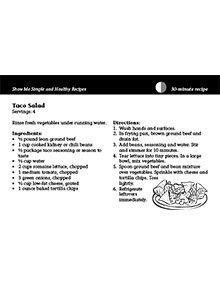
Show Me Simple and Healthy Recipes — Taco Salad (Bundle of 25)
Revised $10
Learn how to make a quick, nutritious taco salad with simple ingredients, step-by-step instructions, and detailed nutrition information.
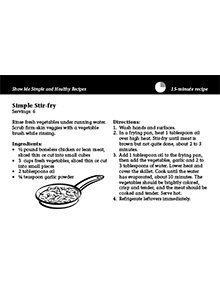
Show Me Simple and Healthy Recipes — Simple Stir-fry (Bundle of 25)
Revised $10
Editor's note
The following abstract describes a publication that is available as a downloadable PDF. It is also available printed as part of the NC1 Show Me Simple and Healthy Recipes set
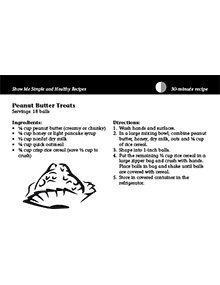
Show Me Simple and Healthy Recipes — Peanut Butter Treats (Bundle of 25)
Revised $10
Editor's note
The following abstract describes a publication that is available as a downloadable PDF. It is also available printed as part of the NC1 Show Me Simple and Healthy Recipes set
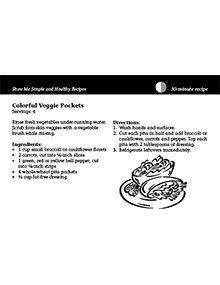
Show Me Simple and Healthy Recipes — Colorful Veggie Pockets (Bundle of 25)
Revised $10
Editor's note
The following abstract describes a publication that is available as a downloadable PDF. It is also available printed as part of the NC1 Show Me Simple and Healthy Recipes set
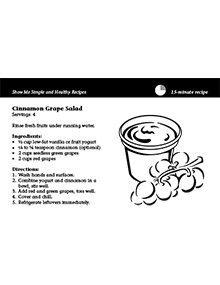
Show Me Simple and Healthy Recipes — Cinnamon Grape Salad (Bundle of 25)
Revised $10
Editor's note
The following abstract describes a publication that is available as a downloadable PDF. It is also available printed as part of the NC1 Show Me Simple and Healthy Recipes set

Show Me Simple and Healthy Recipes — Wonderful Winter Squash (Bundle of 25)
Revised $10
Explore 25 easy, healthy recipes with winter squash—quick to prepare, budget-friendly, and perfect for nutrition education.
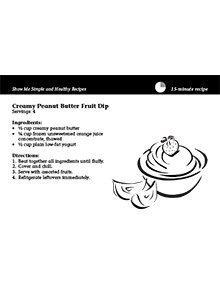
Show Me Simple and Healthy Recipes — Creamy Peanut Butter Fruit Dip (Bundle of 25)
Revised $10
Editor's note
The following abstract describes a publication that is available as a downloadable PDF. It is also available printed as part of the NC1 Show Me Simple and Healthy Recipes set
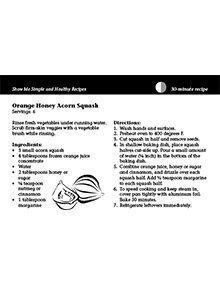
Show Me Simple and Healthy Recipes — Orange Honey Acorn Squash (Bundle of 25)
Revised $10
Editor's note
The following abstract describes a publication that is available as a downloadable PDF. It is also available printed as part of the NC1 Show Me Simple and Healthy Recipes set
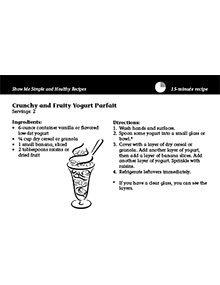
Show Me Simple and Healthy Recipes — Crunchy and Fruity Yogurt Parfait (Bundle of 25)
Revised $10
Quick and healthy yogurt parfait recipe with granola, bananas, and raisins; ideal for nutrition education and simple meal planning.
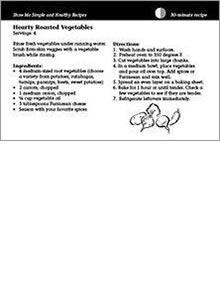
Show Me Simple and Healthy Recipes — Hearty Roasted Vegetables (Bundle of 25)
Revised $10
Editor's note
The following abstract describes a publication that is available as a downloadable PDF. It is also available printed as part of the NC1 Show Me Simple and Healthy Recipes set
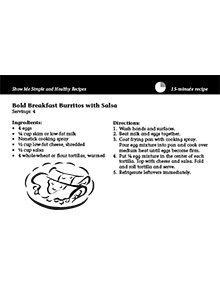
Show Me Simple and Healthy Recipes — Bold Breakfast Burritos with Salsa (Bundle of 25)
Revised $10
A hearty breakfast burrito featuring eggs, cheese, salsa, and tortillas—quick to prepare and perfect for busy mornings.

Show Me Simple and Healthy Recipes — Nutty Apple and Spinach Salad (Bundle of 25)
Revised $10
Quick, nutritious salad with apples, spinach, walnuts, and a honey-lemon dressing.
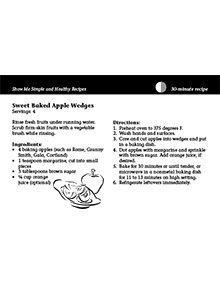
Show Me Simple and Healthy Recipes — Sweet Baked Apple Wedges (Bundle of 25)
Revised $10
This publication provides a straightforward recipe for sweet baked apple wedges, featuring apples, margarine, brown sugar, and orange juice.
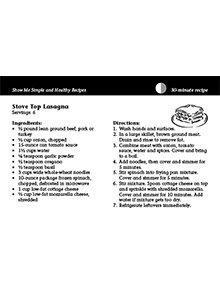
Show Me Simple and Healthy Recipes — Stove Top Lasagna (Bundle of 25)
Revised $10
This recipe offers a quick, budget-friendly meal featuring tortillas, ground meat, black beans, corn, salsa, and cheese.

Show Me Simple and Healthy Recipes — Cheesy Chicken/Turkey Broccoli Casserole (Bundle of 25)
Revised $10
Editor's note
The following abstract describes a publication that is available as a downloadable PDF. It is also available printed as part of the NC1 Show Me Simple and Healthy Recipes set

Show Me Simple and Healthy Recipes
New $10
These simple, healthy food and beverage recipes can be prepared quickly, in 15-30 minutes. Each requires just a few low-cost ingredients and includes a nutrition analysis. Get cooking today!
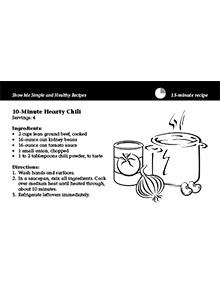
Show Me Simple and Healthy Recipes — 10-Minute Hearty Chili (Bundle of 25)
Revised $10
Editor's note
The following abstract describes a publication that is available as a downloadable PDF. It is also available printed as part of the NC1 Show Me Simple and Healthy Recipes set
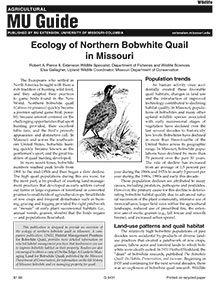

Show Me Simple and Healthy Recipes — Baked Tortilla Chips (Bundle of 25)
Revised $10
Quick and easy baked tortilla chips recipe using simple ingredients. Perfect for healthy snacks and fast meal prep.
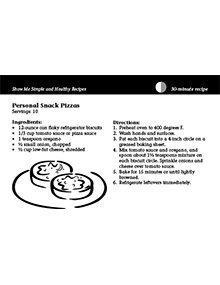
Show Me Simple and Healthy Recipes — Personal Snack Pizzas (Bundle of 25)
Revised $10
Editor's note
The following abstract describes a publication that is available as a downloadable PDF. It is also available printed as part of the NC1 Show Me Simple and Healthy Recipes set